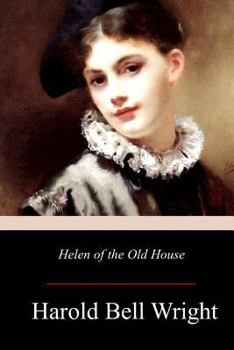Helen of the Old House
Select Format
Select Condition 
Book Overview
The classic story of a labor conflict in a mid-western industrial town. This description may be from another edition of this product.
Format:Paperback
Language:English
ISBN:197637751X
ISBN13:9781976377518
Release Date:September 2017
Publisher:Createspace Independent Publishing Platform
Length:148 Pages
Weight:0.46 lbs.
Dimensions:0.3" x 6.0" x 9.0"
Customer Reviews
1 rating
Small Town America Circa 1920s
Published by Thriftbooks.com User , 22 years ago
Here is another demonstration of Harold Bell Wright working his magic on the printed page. In a solidly American tale, he vivifies his characters in palpable surroundings. His narrative makes readers feel as though they are witnesses to the action as it takes place.Against a backdrop of union politics in a factory town, the book takes a strong swipe at Communism while simultaneously decrying corporate greed. Ironically, this work-published in the 1920s-while strongly opposed to Karl Marx's ruinous philosophy never uses the word, "communism." The repeated references are subtle but unmistakable as when a "foreign" labor-organizing rabble-rouser says that his greatest allegiance is to the "Big Union."On the other side of the coin, the criticisms of big business are limited to corruption and extreme selfishness. These vices are seen as invidious precisely because they abuse capitalism. The concept of getting rich via hard work is esteemed, as are the virtues of honesty, generosity, and devotion to one's fellow man.One of the likable characters is murdered near the end of the book which is likely a device to show the horror of communism. In a disquieting move, a plea for the killer's clemency seems divagating at best and certainly unjustified given the story. Despite that flaw, the book is a worthwhile read as much for its linguistic potency as for the emotionally inspiring plot. "Helen of the Old House" is one more example of why the author of "Shepherd of the Hills" became known as the "Storyteller to America."






